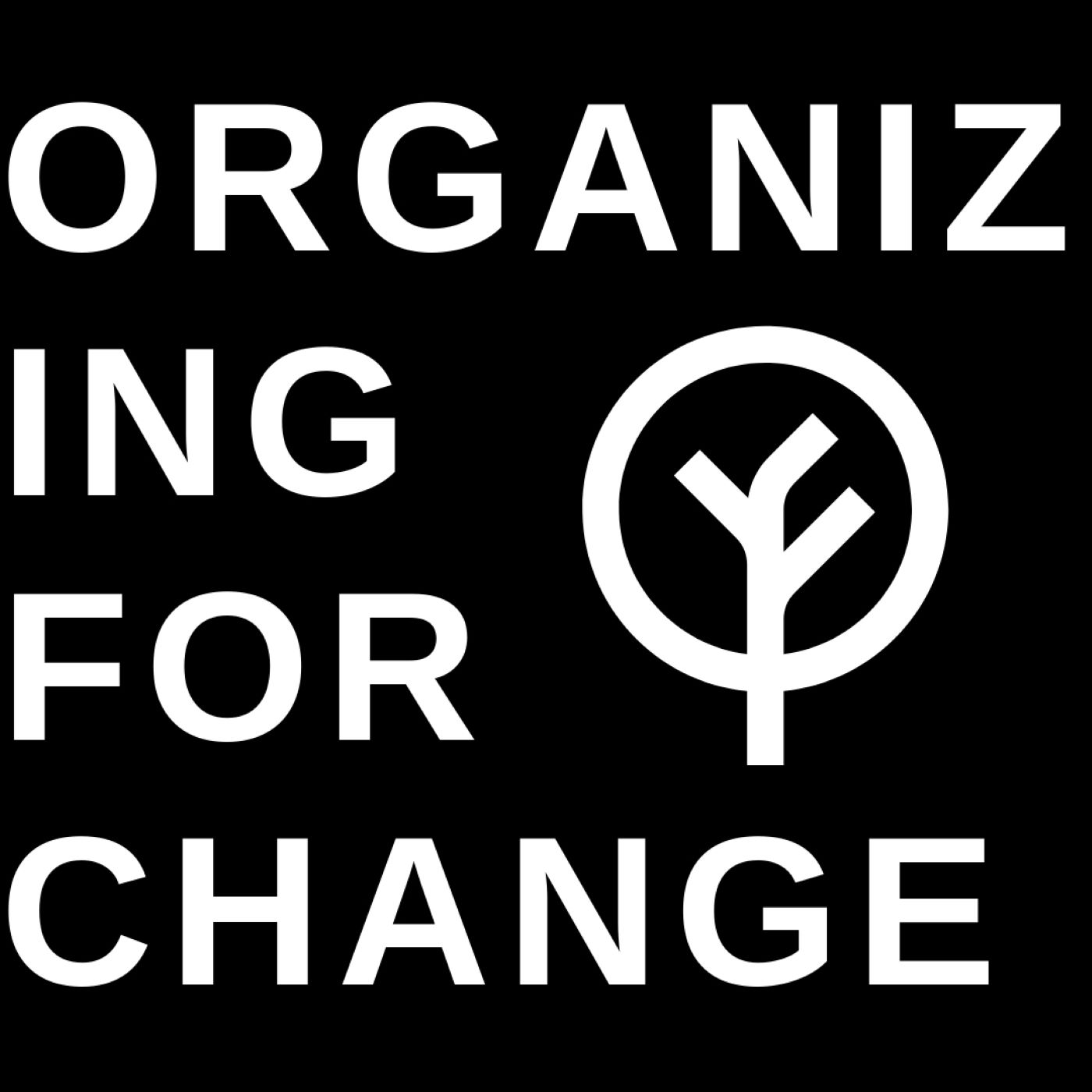
12.1K
Downloads
48
Episodes
Get the Show Notes at: http://eepurl.com/dGJgp9 Have you ever wished you could hear what others are doing to make a difference in their world? The goal of this podcast is to help Substance Use Prevention Coordinators, equip coalitions, organizations, and individuals to bring change to their community.
Get the Show Notes at: http://eepurl.com/dGJgp9 Have you ever wished you could hear what others are doing to make a difference in their world? The goal of this podcast is to help Substance Use Prevention Coordinators, equip coalitions, organizations, and individuals to bring change to their community.
Episodes
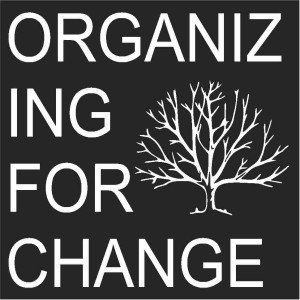
Tuesday Mar 26, 2019
27 - Using the "Feel" not Just the "Facts" to Bring Change
Tuesday Mar 26, 2019
Tuesday Mar 26, 2019
Organizing for Change Podcast - Episode 27 Show Notes
Goal: “to equip coalitions, organizations, and individuals to bring change to their community”
Thank you all so much for your support!
You all have helped this show grow into reaching people in every state and now over 40 countries!
____________________________________________________________
Today's episode is brought to you by the Montana Institute:
http://www.montanainstitute.com/montana-summer-institute
There are so many reasons for HOPE! This year the theme for the annual MONTANA SUMMER INSTITUTE is Reasons for HOPE: Building Positive, Healthy, Resilient Communities.
This fantastic event will be held June 25th-28th in Big Sky, Montana. Participants will hear Dr. Jeff Linkenbach and the dynamic Montana Summer Institute faculty share cutting-edge science, tools and resources for building healthy, resilient communities. The 2019 Institute will focus on how Science of the Positive, Positive Community Norms, and Health Outcomes from Positive Experience (H.O.P.E) are creating new opportunities in prevention and driving community transformation on a wide range of health and safety issues.
Join them in Big Sky to learn how positive, norms-based approaches can power up your public health and prevention practices, improve your leadership skills, and increase the effectiveness and sustainability of your projects.
____________________________________________________________
Host, Amanda Decker joins Mercer County WV, Commissioner, Greg Puckett.
A native southern West Virginian with a passion for prevention, Greg Puckett has worked tirelessly to bring special projects and initiatives to the area in the hopes of preventing the use of alcohol, tobacco and other drugs amongst youth.
As Executive Director of Community Connections, a community based 501(c)(3) non-profit, he advocates for strong public policy, and leads others to combat the addiction epidemic and community revitalization/stabilization efforts. He currently serves on several state committees including the Governor’s Committee on Crime, Delinquency and Corrections: Juvenile Justice Subcommittee, and serves on the Board of Community Anti-Drug Coalitions of America (CADCA), where he is a past recipient of CADCA’s National Advocate of the Year award. In 2010, Puckett also assisted CADCA in securing funds to host the first-ever, statewide National Youth Leadership Initiative.
On this episode we discuss changing the look of a community to change how people act in the community, the importance of the media and the value of having coalition "events".
As always If you find this episode helpful, would you please help us get the word out by sharing it with a friend or colleague? And please leave a review. That is the best way to make sure other folks can find out about the podcast.
Welcome to Episode 027 of the Podcast:
Guest: Greg Puckett, County Commissioner, Mercer County, WV
CADCA Website:
https://www.cadca.org/team/gregory-puckett
Greg Puckett Facebook:
https://www.facebook.com/gregpuckettwv
Greg’s Contact Information: Greg.puckett@mercercountywv.org
Organizing for Change Website:
https://organizing4change.podbean.com/
Organizing for Change Twitter:
@organizing4chng
4 Insights from This Episode:
- Community Coalitions have a lifespan. Don’t keep a coalition going “just because”. Greg explains how his coalition became stale and stagnant. The group had done some significant work in the community and now did not have new momentum for the future. The coalition was shut down, and a new coalition emerged within 6 months and was energized to take on new initiatives to reduce substance use.
- Understand the culture of your community, not just the statistics. If you can change the way a community looks, you can change the way a community feels, and if you change the way it feels, you will change the way it acts.
- Speak “Hope” into your community. Change starts with you. Take some time as a coalition to think about what each of you are saying about your community. Are you reinforcing the positive or the negative?
“If you want disease in your community, promote disease, but if you want hope, promote hope” -Dr. Jeff Linkenbach
- Events are not evil.Policy work can take a long time and although it is the most effective in reducing substance use, it can be tough for people to stay involved in your coalition during the process. Holding events that rally the community together and keep them engaged, can bring momentum to your coalition and keep the work moving forward.
Next Episode: Subscribe now for free and you won’t miss episode 028
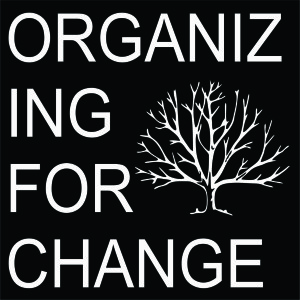
Tuesday Feb 26, 2019
26 - Why Does It Matter?
Tuesday Feb 26, 2019
Tuesday Feb 26, 2019
Organizing for Change Podcast - Episode 26 Show Notes
Goal: “to equip coalitions, organizations, and individuals to bring change to their community”
Host, Amanda Decker joins Jason Anderson, trainer for the Montana Institute. Upon his discharge from the United States Army, Jason obtained his Bachelor’s Degree in Criminal Justice (Minor in Psychology) at Moorhead State University. He has worked in the field of probation since 1998 – spending a decade as an adult felony probation/parole agent and 5 years as an Evidence-Based Practices project manager/trainer for the MN Dept. of Corrections.
Jason became the Director of the Itasca County Probation Department in 2013. In addition to his duties as a probation officer and manager, he has served as a trainer of various topics including Motivational Interviewing since 2001. He is an active member of 2 school-based substance abuse prevention coalitions in his community.
Jason began curriculum development and training delivery for The Montana Institute in 2016. A father of 2 boys (ages 15 and 17), he enjoys spending time outdoors with his family, singing in his church choir, community theater and running an occasional race.
On this episode we talked about the reason why we do this work.
Why does your why matter? Jason breaks down discovering your why and how it can motivate your community to change. We also talked about changing our approach in communication to create change in your community.
This is one of my all time favorite episodes and I think it will be one of yours too.
As always If you find this episode helpful, would you please help us get the word out by sharing it with a friend or colleague? And please leave a review. That is the best way to make sure other folks can find out about the podcast.
Welcome to Episode 026 of the Podcast:
Guest: Jason Anderson
Montana Institute Website:
http://www.montanainstitute.com/
Organizing for Change Website:
https://organizing4change.podbean.com/
Organizing for Change Twitter:
@organizing4chng
3 Insights from This Episode:
- Your Why Matters. Most people are not motivated by facts, they are motivated by an emotional tug. This is why your “why” matters. If your coalition is stuck, remind them of the why. If you are stuck, remind yourself of the why. It’s not always about “what is in it for us.”
- Appreciate and Understand Someone Else’s Perspective. Even though you may disagree with someone else’s perspective, it is important to have empathy and understand where someone is coming from. Just being willing to hear where someone is coming from and to express and acknowledge their perspective, can open the door for communication.
- Don’t Be the Expert. We obviously know a lot about our field, or we wouldn’t be in it. But, our attitude of approach matters. If we come across as the “expert”, people tend to be defensive and shut down. Instead, Jason talks about having a curiosity and engaging people in the solution as a better method and approach to getting results.
Next Episode: Subscribe now for free and you won’t miss episode 027

Tuesday Feb 19, 2019
Setting Goals - Bonus Episode with Amanda Decker & Allie Zajac
Tuesday Feb 19, 2019
Tuesday Feb 19, 2019
Organizing for Change Podcast - Bonus Episode #1 Show Notes
Goal: “to equip coalitions, organizations, and individuals to bring change to their community”
Host, Amanda Decker joins Co-Worker, Allie Zajac on a bonus episode to talk about sticking to your goals in 2019. On this episode we talk about some tips and tricks to making sure your goals get crushed this year!
As always If you find this episode helpful, would you please help us get the word out by sharing it with a friend or colleague? And please leave a review. That is the best way to make sure other folks can find out about the podcast.
Welcome to Our First Bonus Episode!
Organizing for Change Website:
https://organizing4change.podbean.com/
Organizing for Change Twitter:
@organizing4chng
2 Insights from This Episode:
- Make the Healthy Choice the Easy Choice. Amanda and Allie talk about helping your goals by making the healthy choice for you and your community, easier. If the negative choice is easily accessible and available it will make your goal that much harder to accomplish.
- Figure out Your Habit Loop. Allie talks about how we all have habits. We have cues (things that we can not change) and they cause a response which brings us some sort of reward. Allie talks about learning your cues so you can input a healthy response which will still give a reward, but one that will benefit you.
Next Episode: Subscribe now for free and you won’t miss our next episode!

Tuesday Jan 29, 2019
25 - Dealing with Difficult People
Tuesday Jan 29, 2019
Tuesday Jan 29, 2019
Organizing for Change Podcast - Episode 25 Show Notes
Goal: “to equip coalitions, organizations, and individuals to bring change to their community”
Host, Amanda Decker joins Tom Vega, leadership coach, and change consultant trained in the areas of Strategic Management and Leadership Effectiveness.Tom offers individuals and teams a complete continuum of skills and solutions in areas of relationship management, process improvement, problem-solving, change awareness, and execution. He does this by combining emotional awareness techniques with contemporary change and process analysis methods that other folks may not even be aware of.
If you are sitting with people at your table who are not fully engaged, or who are tough to work with, I really think this episode will help you out!
If you find this episode helpful, would you please help us get the word out by sharing it with a friend or colleague?
Welcome to Episode 025 of the Podcast:
Guest: Tom Vega
Tom Vega Consulting Website:
https://www.tommvega.com/
Book Tom Mentions:
Emotional Intelligence 2.0 by Travis Bradberry & Jean Greaves
http://www.talentsmart.com/test/
Organizing for Change Website:
https://organizing4change.podbean.com/
Organizing for Change Twitter:
@organizing4chng
4 Insights from This Episode:
Explain the why. Help people understand why you are asking for information before you ask.
Judge the idea, not the person. As a facilitator, help the ideas be the item that is evaluated, not the person. Ask questions like: why do you have this idea? Where did you get this idea from?
Lack of emotional intelligence equals a decrease in profit and outcomes. Often times, leaders can thing emotional intelligence is silly and too “touchy feely”. Tom talks about communicating with leaders about the importance of emotional intelligence by connecting it to something the leader cares about. (Such as profit and outcomes)
Leaders inspire. It is crucial to tell a story in a way that inspires action. Most people know how to do a task, but you need to give them the inspiration to motivate them to actually do the task.
Next Episode: Subscribe now for free and you won’t miss episode 026

Tuesday Dec 25, 2018
24 - The Synergist: Leading Your Team to Predictable Success
Tuesday Dec 25, 2018
Tuesday Dec 25, 2018
Goal: “to equip coalitions, organizations, and individuals to bring change to their community”
Host, Amanda Decker joins Les McKeown who is the President & CEO of Predictable Success. In this role, he advises CEOs and senior leaders of organizations on how to achieve scalable, sustainable growth and speaks to Fortune 500 companies about his breakthrough strategies.
Prior to founding Predictable Success, Les established himself as a serial founder/owner in the global business spectrum, starting more than 40 companies, in addition to being the founding partner of an incubation consulting company that advised on the creation and growth of hundreds more organizations worldwide. It is through this experience that he aids businesses in different size and scope as an in-demand speaker, sought-after advisor and bestselling author of Predictable Success: getting Your Organization on the Growth Track - And Keeping it There.
Based in Marblehead MA, Les now spends his time consulting, writing, teaching, and speaking. Les has appeared on CNN, ABC, BBC, Inc, Entrepreneur magazine, USA Today and The New York Times.
If you find this episode helpful, would you please help us get the word out by sharing it with a friend or colleague?
Welcome to Episode 024 of the Podcast: The Synergist: Leading Your Team to Predictable Success
Guest: Les McKeown, President and CEO of Predictable Success
Predictable Success Website:
https://predictablesuccess.com/
Predictable Success Facebook:
https://www.facebook.com/predictablesuccess/
Les McKeowen Twitter:
https://twitter.com/lesmckeown
The Synergist Quiz
Organizing for Change Website:
https://organizing4change.podbean.com/
Organizing for Change Twitter:
@organizing4chng
3 Insights from This Episode:
- What got you to where you are, will not get you to where you need to go. Les breaks down what is Predictable Success and what is needed to get your team to grow for the next level.
- The Synergist is a learned style that says “We are all here to do what is best for the whole”. We all have styles of working together that we are best at, but sometimes we need to learn a new style in order to make our organization the best it can be. ACES uses the synergist quiz to determine coalition member styles and learn to put them in the roles that would suit them best.
- Know what you want to do. Les talks about how he left his large organization because he liked the flexibility and freedom a small organization could offer.
Next Episode: Subscribe now for free and you won’t miss episode 025

Tuesday Nov 27, 2018
23 - Creatively Sharing Your Message
Tuesday Nov 27, 2018
Tuesday Nov 27, 2018
Organizing for Change Podcast - Episode 23 - Creatively Sharing Your Message Show Notes
Goal: “to equip coalitions, organizations, and individuals to bring change to their community”
Welcome to episode 23 of the podcast.
In this month’s episode; Amanda talks with Kendra McLaughlin about the work she is doing in her community of Garrett County, Maryland.
Kendra’s group did an awesome viral PSA and they are working hard to get accurate information out surrounding marijuana. You can find the PSA and more information at their website; www.spreadthefacts.com.
If this episode helps you in any way, would you consider sharing with a colleague or friend and help us to continue to share these messages? That would mean so much to us!
Guest: Kendra McLaughlin
Organizing for Change Website: https://organizing4change.podbean.com/
Organizing for Change Twitter: @organizing4chng
We love getting feedback from you! If you have any feedback or have an idea for an episode, email us at organizing4change@gmail.com
Next Episode: Subscribe now for free and you won’t miss episode 024

Tuesday Oct 30, 2018
22 - Leading Yourself
Tuesday Oct 30, 2018
Tuesday Oct 30, 2018
Organizing for Change Podcast - Episode 22 - Leading Yourself Show Notes
Goal: “to equip coalitions, organizations, and individuals to bring change to their community”
Welcome to episode 22 of the podcast. I just want to take a moment to thank each one of you for listening to the podcast and for sharing it. We now have listeners in 49 states and 23 countries. Wow. You all are amazing.
Also, we wanted to Thank everyone who has taken time to give us feedback and write a review! If you haven’t done so, it would really mean a lot and would help other coalition leaders find us on spaces like itunes.
I am so excited to bring you this episode today with Jim Trick, coach, consultant for That Life, author and musician to talk about creating personal change.
Jim Trick has overcome morbid obesity, turned a freelance consultancy into a six figure income and helped to build a million dollar small business, but Jim’s ultimate passion is working with people who want to personally and professionally live with greater freedom, fulfillment and success. Jim was trained by the prestigious Coach Training Institute and certified by the International Coach Federation.
Along with his work as a coach/consultant, Jim is also a professional musician and speaker. He has traveled all over the country teaching high-level executives the fine art of collaboration with Banding People Together, and is a frequent guest speaker at the Berklee College of Music. Jim was featured alongside American Idol’s Alex Preston, by Berklee for a performance entitled, “An Evening with New England’s top songwriters” and his latest album was fully crowd funded in under four weeks.
A life-changing trip to a Central American refugee village in 1993 prompted Jim to start two inner city food outreach programs in the U.S., one of which served the local homeless community by candlelight with classical music and table service.
Jim Trick knows what it’s like to swim frantically across the alligator riddled Belize river and how it feels to share the stage with a young Katy Perry. One of those experiences was terrifying. The other involved alligators.
If this episode helps you in any way, would you consider sharing with a colleague or friend and help us to continue to share these messages? That would mean so much to us!
Guest: Jim Trick
That Life Website: https://www.thatlife.com/
Organizing for Change Website: https://organizing4change.podbean.com/
Organizing for Change Twitter: @organizing4chng
4 Insights from This Episode:
- Core values are essential to make change. Jim talks about being a slave to our feelings, however values are much more reliable for healthy and powerful decision making. This is true for a community as well. Helping a community identify its values, can help it overcome its negative feelings to create community level change and creates buy in for a community.
- There is a leader in everyone. Leadership starts with leading yourself.
- People have their best answers inside themselves. People are way more likely to follow through on change they have discovered themselves, instead of change they have been prescribed.
- When a person has a voice, they can contribute. When a person sees how their contribution fits the bigger picture, they have purpose. And, when they have purpose, they are engaged.
We love getting feedback from you! If you have any feedback or have an idea for an episode, email us at organizing4change@gmail.com
Next Episode: Subscribe now for free and you won’t miss episode 023
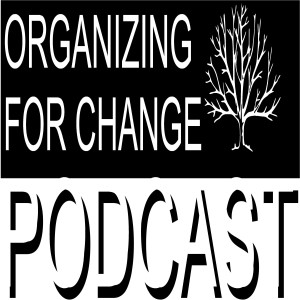
Tuesday Sep 25, 2018
21 - ACES with HOPE Study
Tuesday Sep 25, 2018
Tuesday Sep 25, 2018
Organizing for Change Podcast - Episode 21 Show Notes
Goal: “to equip coalitions, organizations, and individuals to bring change to their community”
Host, Amanda Decker joins ROBERT SEGE, MD, PHD, Co-Director, Stakeholder and Community Engagement; Interim Lead Navigator Tufts CTSI
Robert Sege, MD, PhD is a Professor of Medicine at Tufts University School of Medicine, where he directs a new Center for Community-engaged Medicine. Dr. Sege is nationally known for his research on effective health systems approaches that directly address the social determinants of health. He is a Senior Fellow at the Center for the Study of Social Policy in Washington and serves on the boards of the Massachusetts Children’s Trust and Prevent Child Abuse America.
He has served on the American Academy of Pediatrics’ Committee on Child Abuse and Neglect, and on its Committee on Injury, Violence, and Poisoning Prevention. He is a graduate of Yale College, and received his PhD in Biology from MIT and his MD from Harvard Medical School. Bob lives in the Boston area, where he and his wife Karen have raised three young adult children.
Welcome to Episode 021 of the Podcast: ACES with HOPE Study
Guest: Robert Sege, MD, PHD
Tufts CTSI Website
https://www.tuftsctsi.org/people/robert-sege/
ACES with HOPE Study:
https://www.cssp.org/publications/documents/Balancing-ACEs-with-HOPE-FINAL.pdf
Organizing for Change Website:
https://organizing4change.podbean.com/
Organizing for Change Twitter:
@organizing4chng
3 Insights from This Episode:
- We are not just a collection of all the bad experiences we had. Dr. Sege talks about how he doesn’t deny the problems his patients have, but that he tries to view them in the best light and address them as a whole person, not just their struggles.
- Our children are our future and the future of our communities. The overwhelming majority of people already have protective factors for their children in place. It is important to build on those protective factors in a community to help parents who may not have these protective factors in place.
- Teenagers have to feel like they matter. Dr. Sege talks about the importance of setting up opportunities in a community for a young person to realize they matter. If a young person feels like they don’t matter and what they do doesn’t matter increases their likelihood to use drugs and alcohol.
We love getting feedback from you! If you have any feedback or have an idea for an episode, email us at organizing4change@gmail.com
Next Episode: Subscribe now for free and you won’t miss episode 022
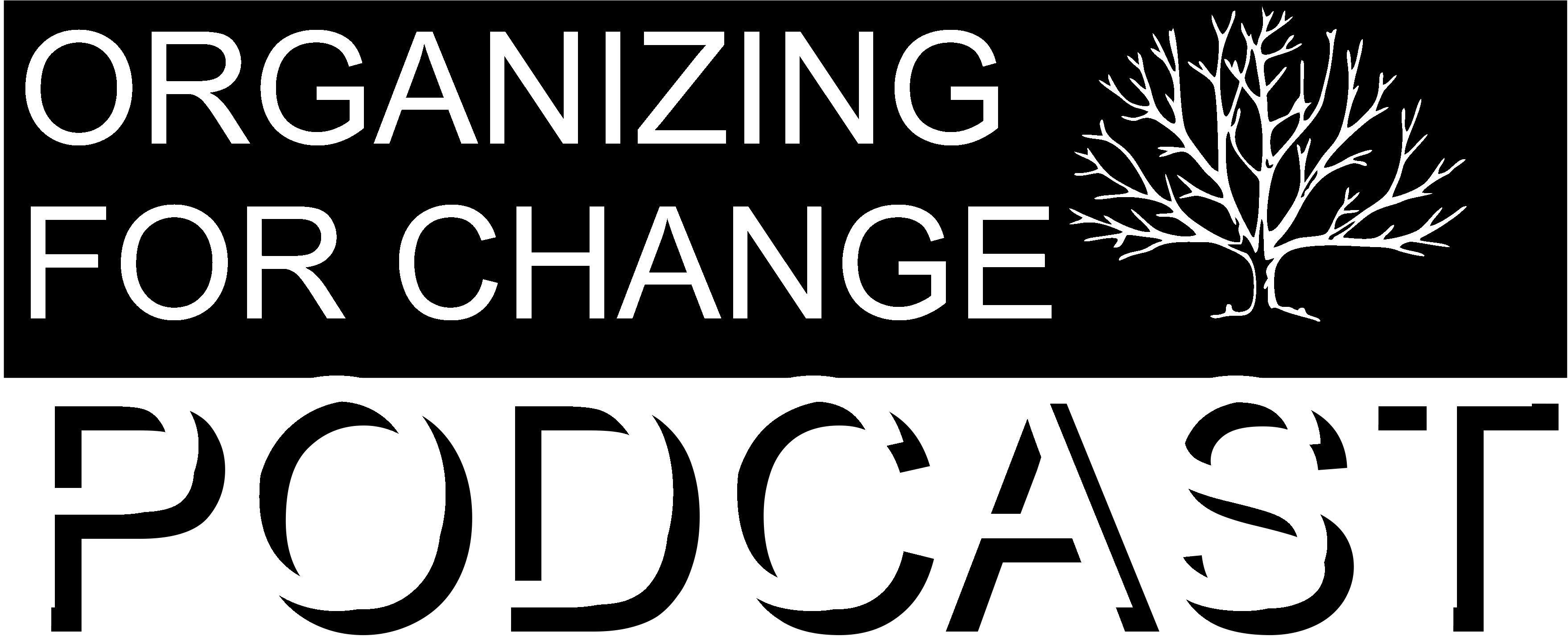
Tuesday Aug 28, 2018
20 - The Science of the Positive
Tuesday Aug 28, 2018
Tuesday Aug 28, 2018
Organizing for Change Podcast - Episode 20 Show Notes
Goal: “to equip coalitions, organizations, and individuals to bring change to their community”
Host, Amanda Decker joins Nick Adams, Planning & Implementation Grant Coordinator, Minnesota Department of Human Services Alcohol and Drug Abuse Division. Nick is a native of Minnesota and wanted to make a difference in his community. After interning with a local non profit in college, he was exposed to the Minnesota Department of Human Services Alcohol and Drug Abuse Division and secured a job working to reduce underage drinking. Nick is a huge fan of Dr. Jeff Linkenbach and the Positive Community Norms framework which you will hear all about in this episode.
Welcome to Episode 020 of the Podcast:
Guest: Nick Adams, Planning & Implementation Grant Coordinator, Minnesota Department of Human Services Alcohol and Drug Abuse Division
Rapids Rising Website:
Rapids Rising Twitter:
https://twitter.com/RapidsRising
Nick’s Email
The Montana Institute
http://www.montanainstitute.com/pcn/
The ACES with HOPE Study
https://www.cssp.org/publications/documents/Balancing-ACEs-with-HOPE-FINAL.pdf
Organizing for Change Website:
https://organizing4change.podbean.com/
Organizing for Change Twitter:
https://twitter.com/organizing4chng
3 Insights from This Episode:
- “If you want health, you have got to promote health. If you promote illness, you will get more illness.” -Jeff Linkenbach
- Perceptions become behaviors. Nick talks about correcting misperceptions around youth alcohol and drug use to help reduce and prevent youth use.
- Slow down and start from scratch. Nick talks about how the tendency to move quickly in coalition work is tempting, but in order to build capacity and have long term impact, you need to slow down and do the hard work of getting people on the same page.
Next Episode: Subscribe now for free and you won’t miss episode 021

Tuesday Jul 31, 2018
19 - Policy and Public Health
Tuesday Jul 31, 2018
Tuesday Jul 31, 2018
Organizing for Change Podcast - Episode 19 Show Notes
Goal: “to equip coalitions, organizations, and individuals to bring change to their community”
Host, Amanda Decker joins Michelle Merritt, President and CEO of New Futures, a nonpartisan, nonprofit organization that advocates, educates and collaborates to improve the health and wellness of all New Hampshire residents through policy change.
Michele has overall leadership and management responsibility for New Futures. With the Board of Directors, she establishes the strategic priorities for the organization. She leads the organization in advancing its mission by creating new possibilities for project initiatives and grants, fostering innovation, leveraging resources, establishing partnerships, and coordinating staff activities. In addition, she seeks to identify opportunities for collaboration between and among New Futures and public and nonprofit entities on policy and legislative issues of mutual concern such as public funding for treatment services and improving access to community-based supports for New Hampshire’s children and families.
Welcome to Episode 019 of the Podcast: Public Health and Policy Change
Guest: Michele Merritt, President and CEO of New Futures
New Futures Website:
New Futures Facebook:
https://www.facebook.com/NewFuturesNH
New Futures Twitter:
https://twitter.com/newfuturesnh
New Futures YouTube:
https://www.youtube.com/user/NewFuturesNHMedia
Organizing for Change Website:
https://organizing4change.podbean.com/
Organizing for Change Twitter:
@organizing4chng
3 Insights from This Episode:
- Michelle talks about the power that just one person can make when it comes to policy change. So often, people do not get involved in contacting their elected officials because they do not think their input will matter. Michelle explains that even a few phone calls or letters can have a powerful impact.
- It is important to define why you exist as an organization or agency so that you don't say "yes" to everything and spread yourselves too thin.
- Limited resources aren't always bad. They can force us to come up with solutions that we may never have thought of otherwise.
Next Episode: Subscribe now for free and you won’t miss episode 020
